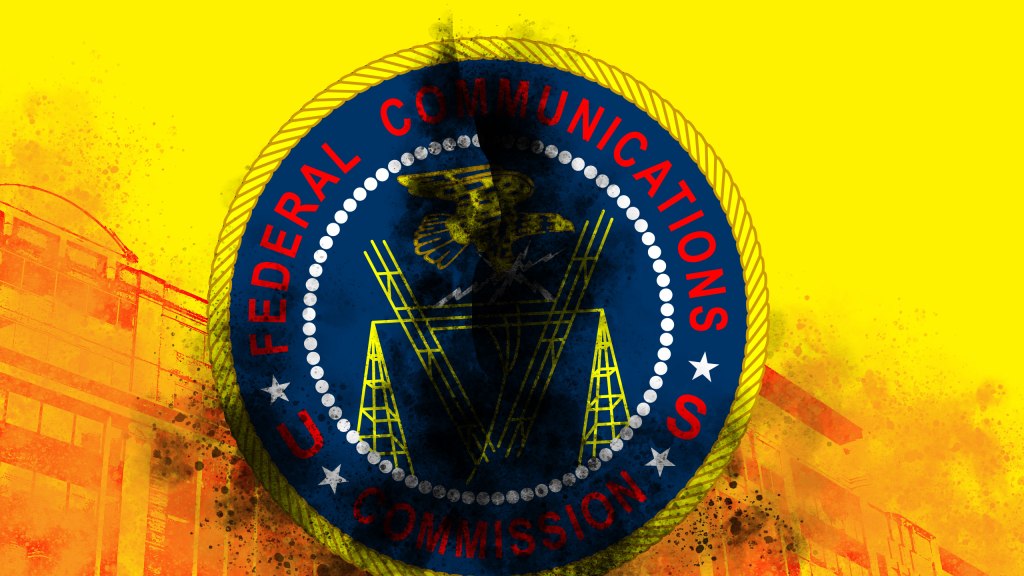Net neutrality’s long trip toward (then away from, then toward again, then away, and now once more toward) federal protections against broadband meddling may be entering its final chapter, either to die forever or be enshrined in law — depending, like so many things, on the outcome of the election in November.
If Biden wins reelection, the rules the FCC is currently putting in place have a good chance of being solidified as a form of law. If Trump wins, net neutrality is dead for one of several reasons.
Let’s tackle the best-case scenario for the long-desired protections first.
As you may recall, net neutrality is the principle, enforced by a set of rules, that companies that operate and offer internet services must leave the traffic on their systems untouched by any preferred deals, prioritization, throttling, or blocking. (Somehow this largely technical distinction has been shoehorned into partisan disputes.)
The FCC has indicated its intention to reestablish net neutrality under similar terms as it did back in 2015, but updated to avoid the legal pitfalls that allowed it to be hamstrung and eventually rolled back in 2017. The agency has promulgated a Notice of Proposed Rulemaking that it will vote on later this month.
Its passage is a foregone conclusion given the current makeup of the agency. Once that happens, it will take some time before coming into effect. When it does and the sky doesn’t fall, there will likely be a legislative effort to make some aspects of the rule into law, perhaps by modifying the Communications Act that gives the FCC its power. This might actually be accomplished if paired with some Section 230 reform or another of the several political pieces in play.
Commission Impossible: How and why the FCC created net neutrality
In a future where Biden is reelected and the Democrats control Congress, this will be accomplished sometime in 2025.
But this is a fragile future. A second Trump presidency, whatever its likelihood or one’s opinion on his other policies, would be fatal to net neutrality efforts.
The first and simplest reason for this is the same one that caused net neutrality to be cut down shortly into his first term: the new administration would appoint a new FCC Chair and, using the standard 3:2 partisan split at the agency, once again roll back the rules decided under the previous administration. This was one of former Chairman Ajit Pai’s stated priorities immediately following Trump’s inauguration in 2017. It would be no different in 2025.
Companies that oppose regulations like the FCC’s net neutrality plans often call for federal legislation on the topic. This is a stalling tactic, since they know expert agencies move fast and are hard to influence, while Congress is slow and relatively tame. And so after the FCC undid net neutrality in 2025, there would be widespread calls for a law — and a near-zero chance of that being accomplished against a Trump veto. As law is more difficult to roll back than independent agency rules, foreclosing this possibility (or delaying it indefinitely in the melee of a second Trump presidency) means net neutrality has no path to permanence.
A third threat to net neutrality comes from the Supreme Court, which is performing quite a bit of conservative wish-fulfillment lately. One dream of that political ideology ostensibly committed to small government is the minimization or elimination of independent agencies like the EPA, SEC, Department of Education, and of course the FCC.
A case before the Court, commonly called Relentless after the plaintiffs, aims to overrule one of the most important doctrines in recent history, a precedent named after Chevron that essentially empowers independent agencies to interpret ambiguous laws using their expertise. For instance, if a law says drinking water must not be contaminated, but doesn’t define contamination, the EPA or FDA does so. Depending on how Relentless is decided, it could completely undermine the power of these agencies and throw the entire federal regulation apparatus of the US into chaos.
Biden’s FCC argues net neutrality restoration will increase online free speech
Net neutrality rules being moot due to the FCC being inoperable would be the least of our worries if that occurs, though. We would be looking at an pan-industry free-for-all the likes of which we haven’t seen for a century. Forget broadband throttling — you’d be reading about environmental and labor disasters of far greater immediate import.
There is a future, of course, in which Biden is reelected and Relentless plunges us into the dark ages. I suspect, however, that a Biden administration would more strenuously combat the reduction of the agencies, if nothing else than for the retention of executive power, which would be severely curtailed by the decision.
It may seem quaint to be worrying about the fate of net neutrality when so much is at stake in this election, but since there is bound to be some jubilation around its reestablishment, it is only reasonable to temper that optimism with a touch of dour vigilance.































Comment